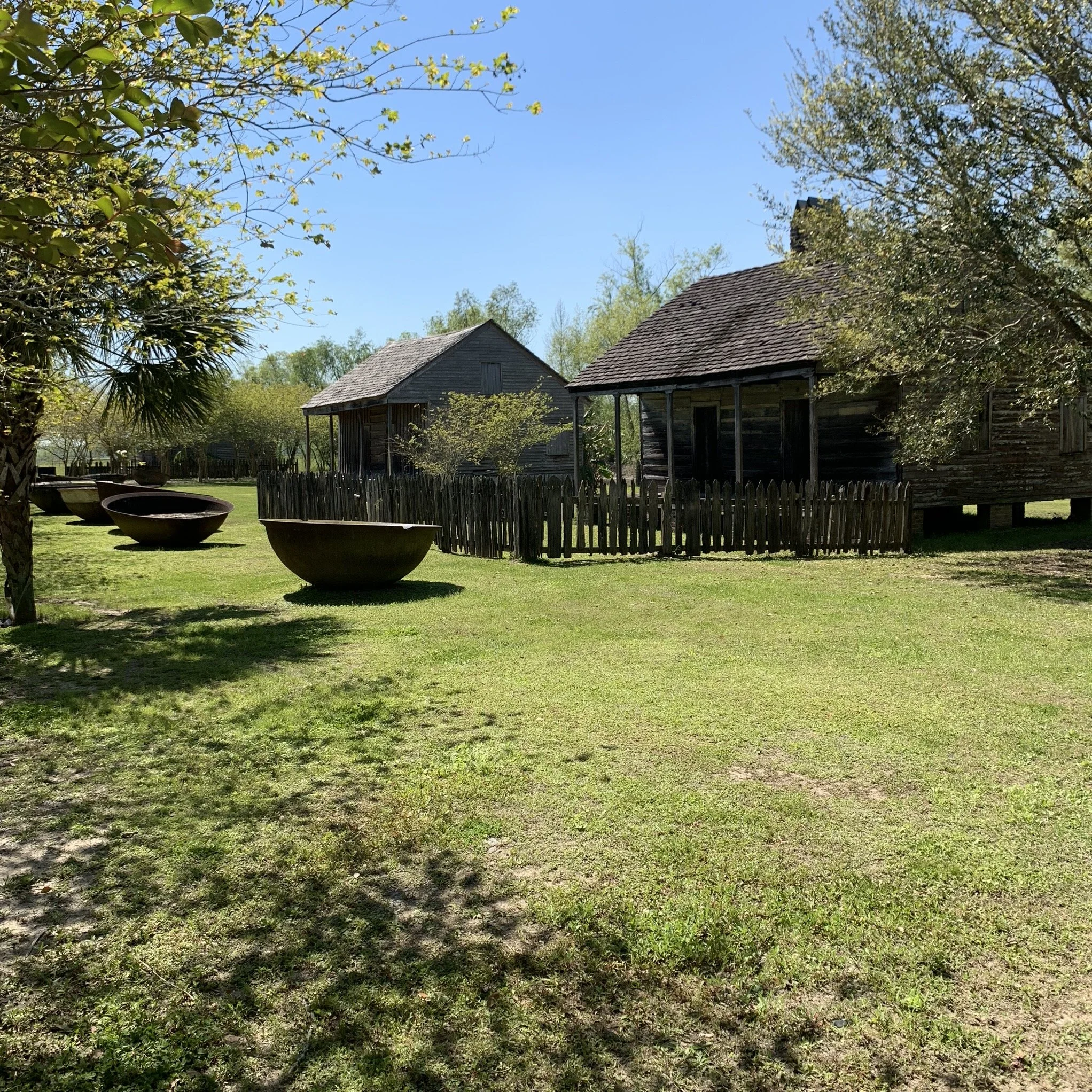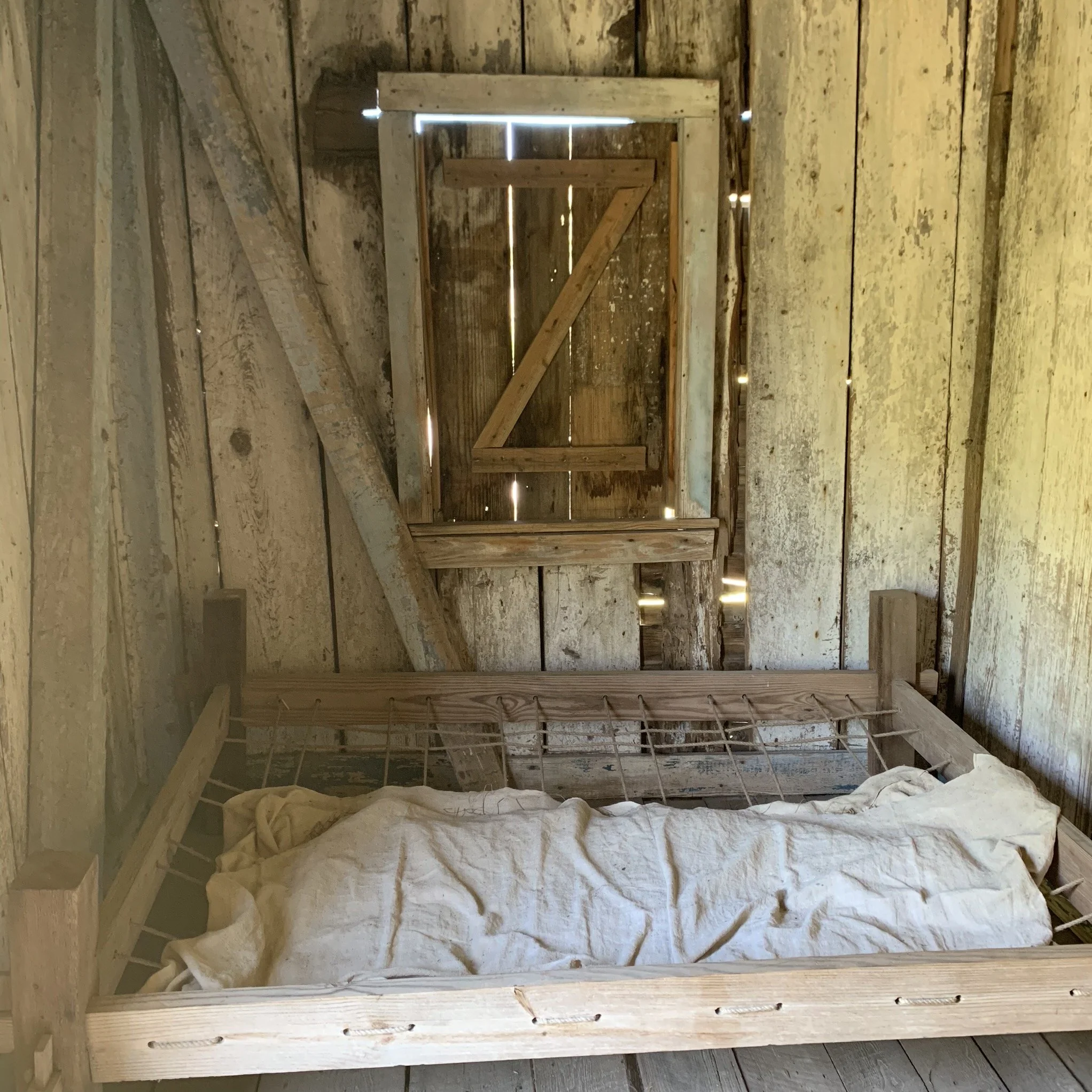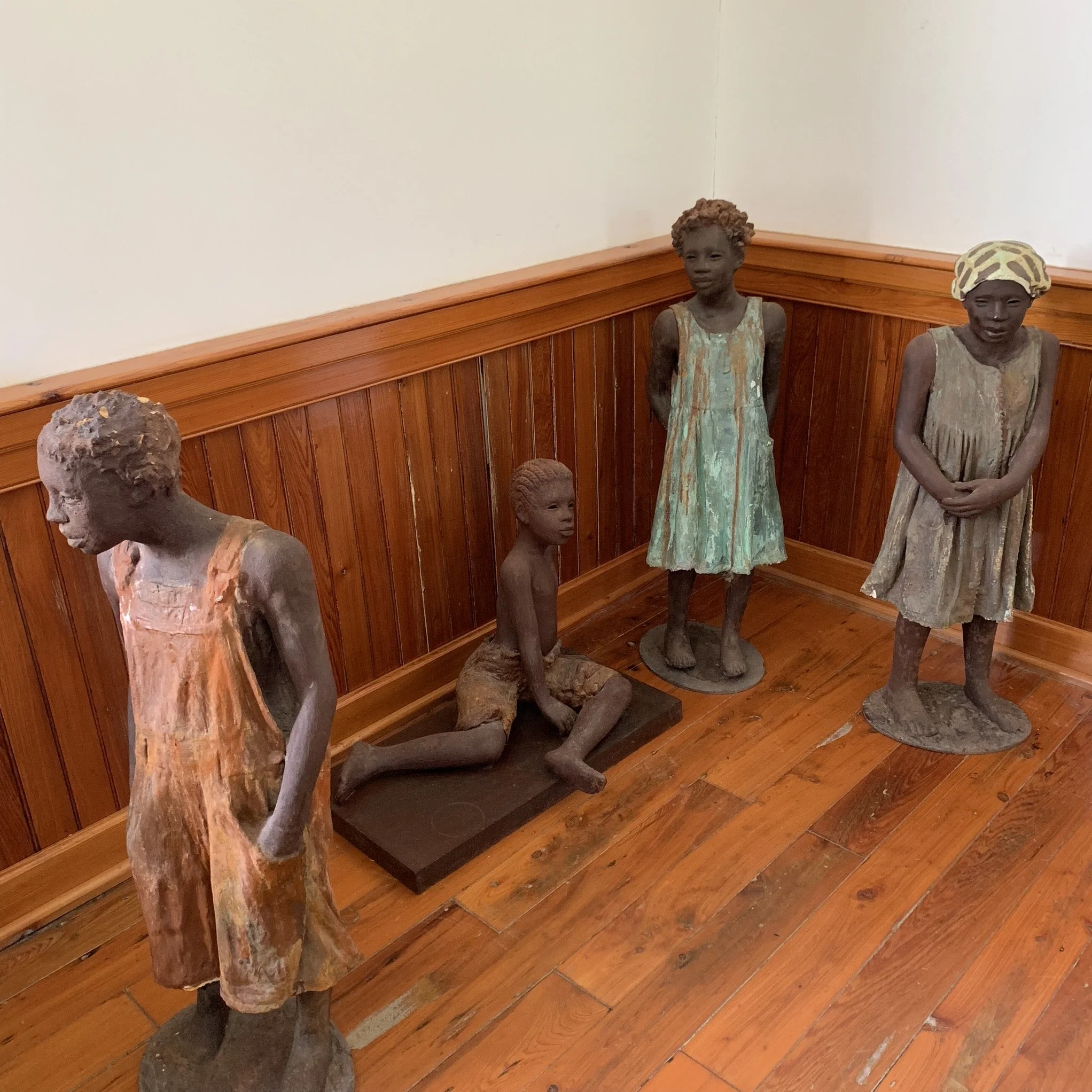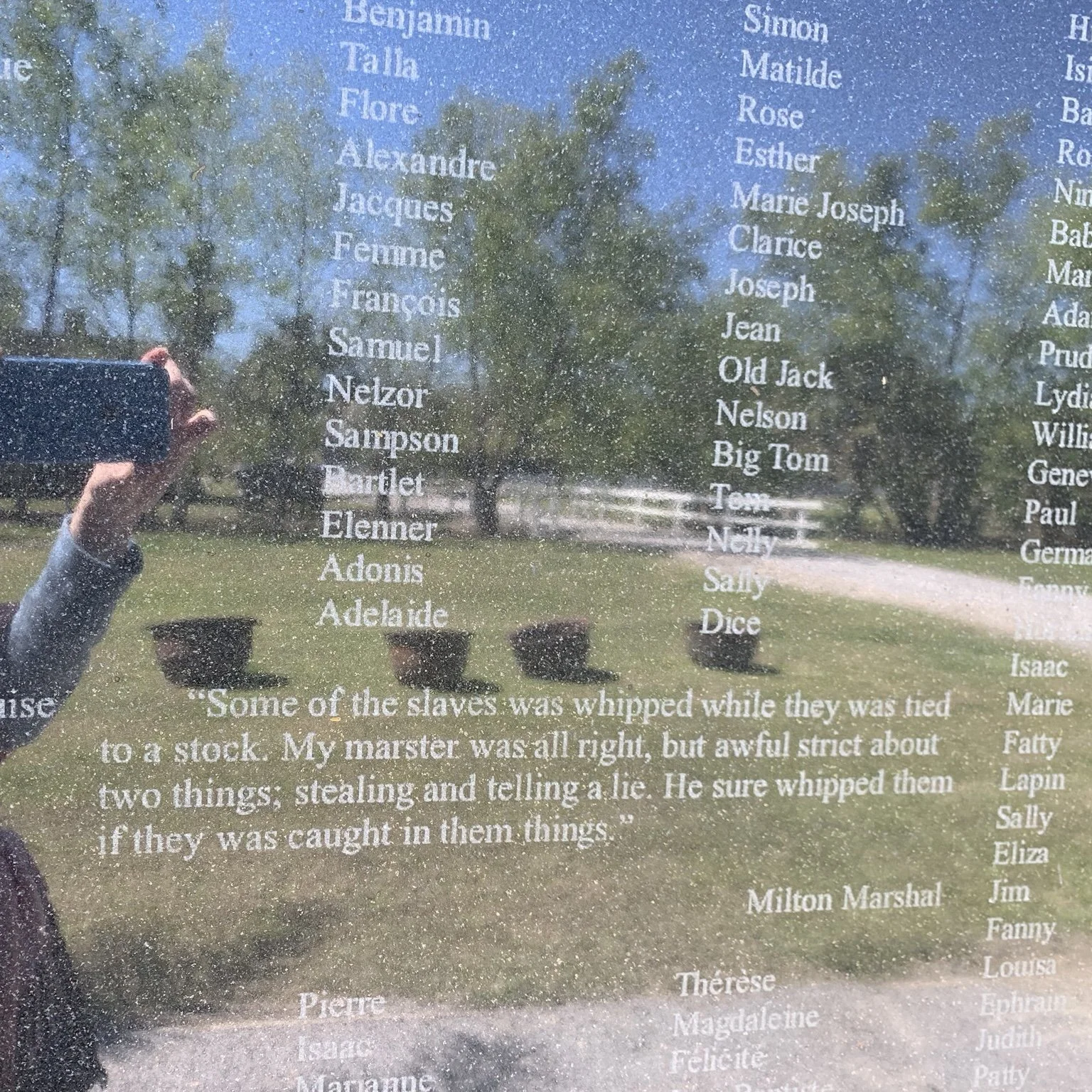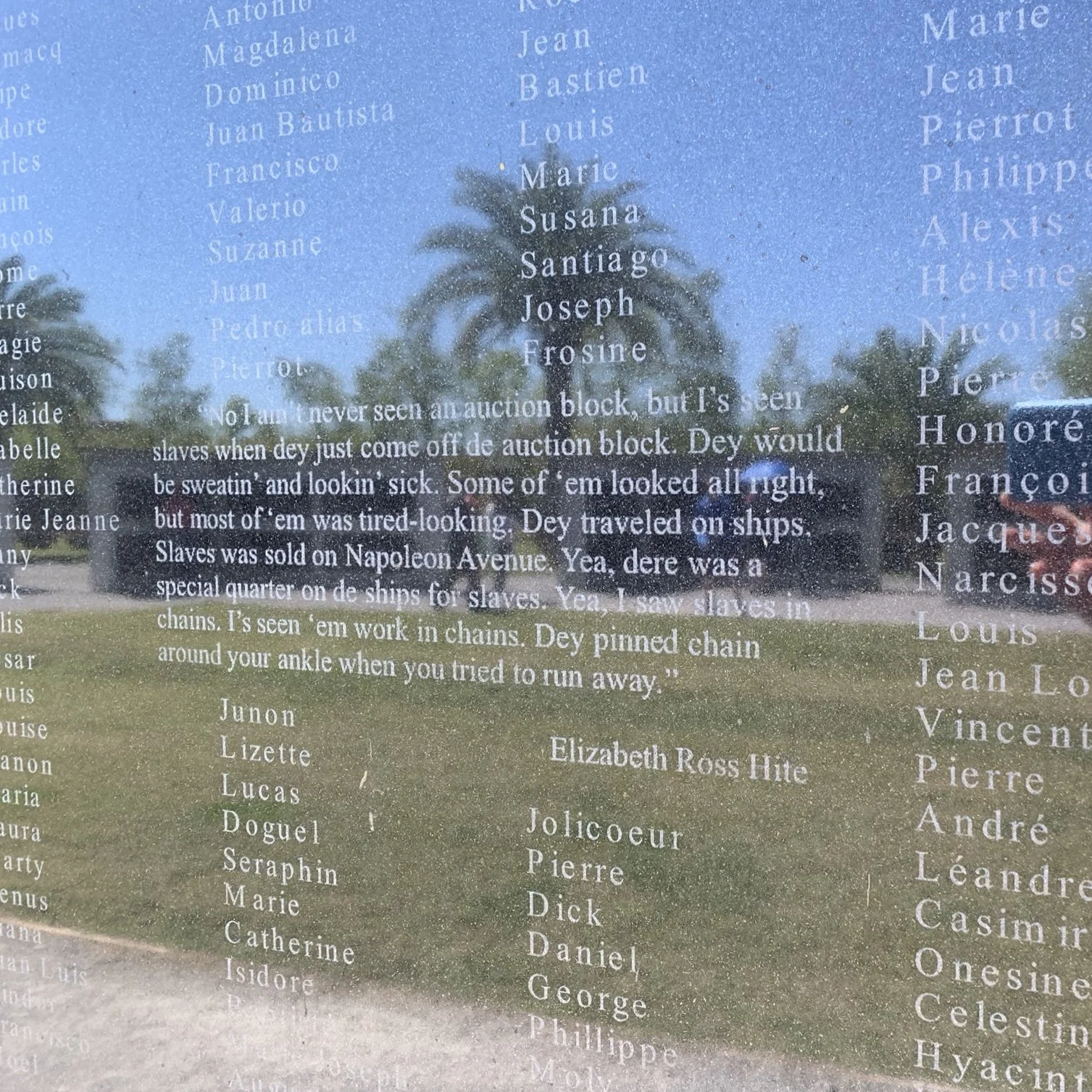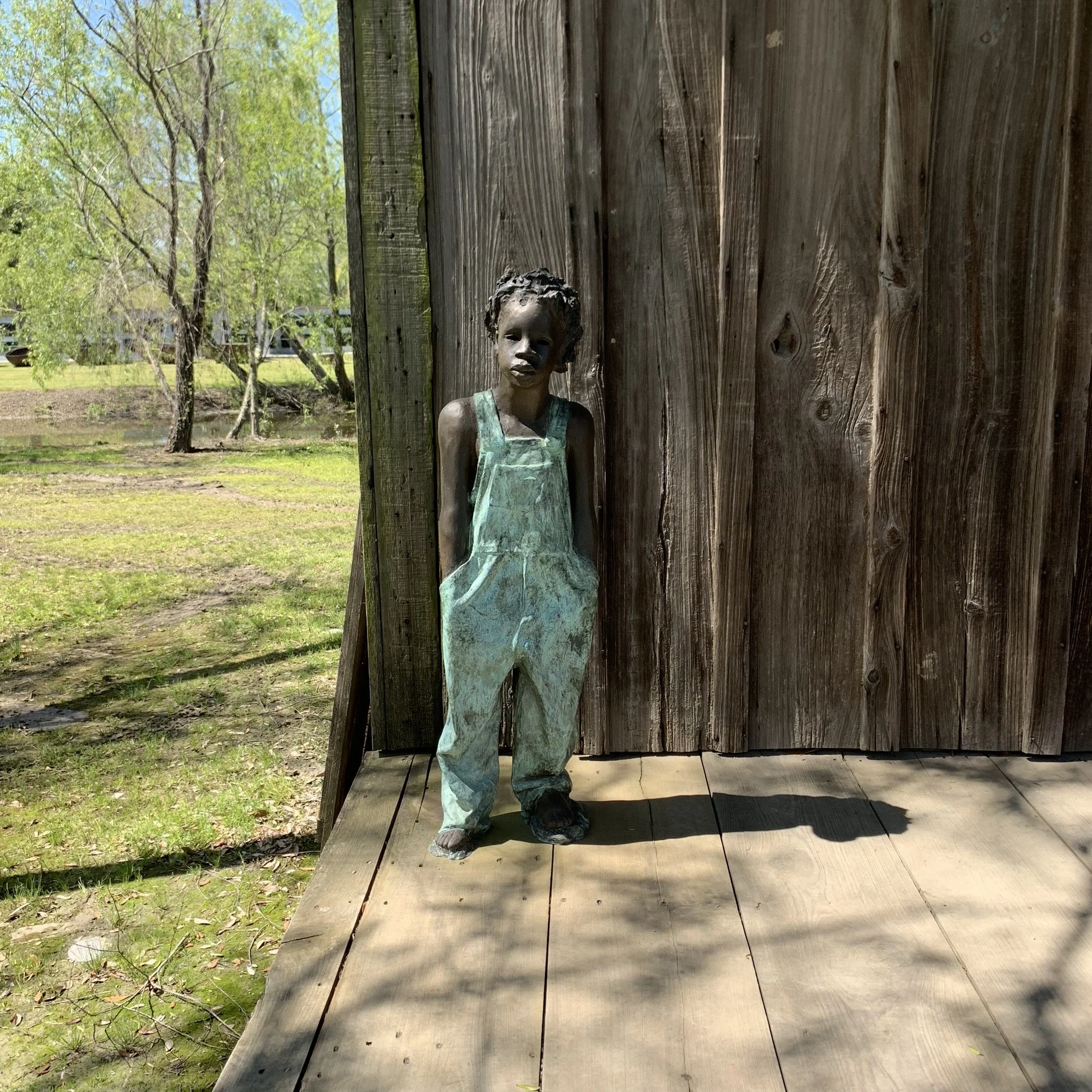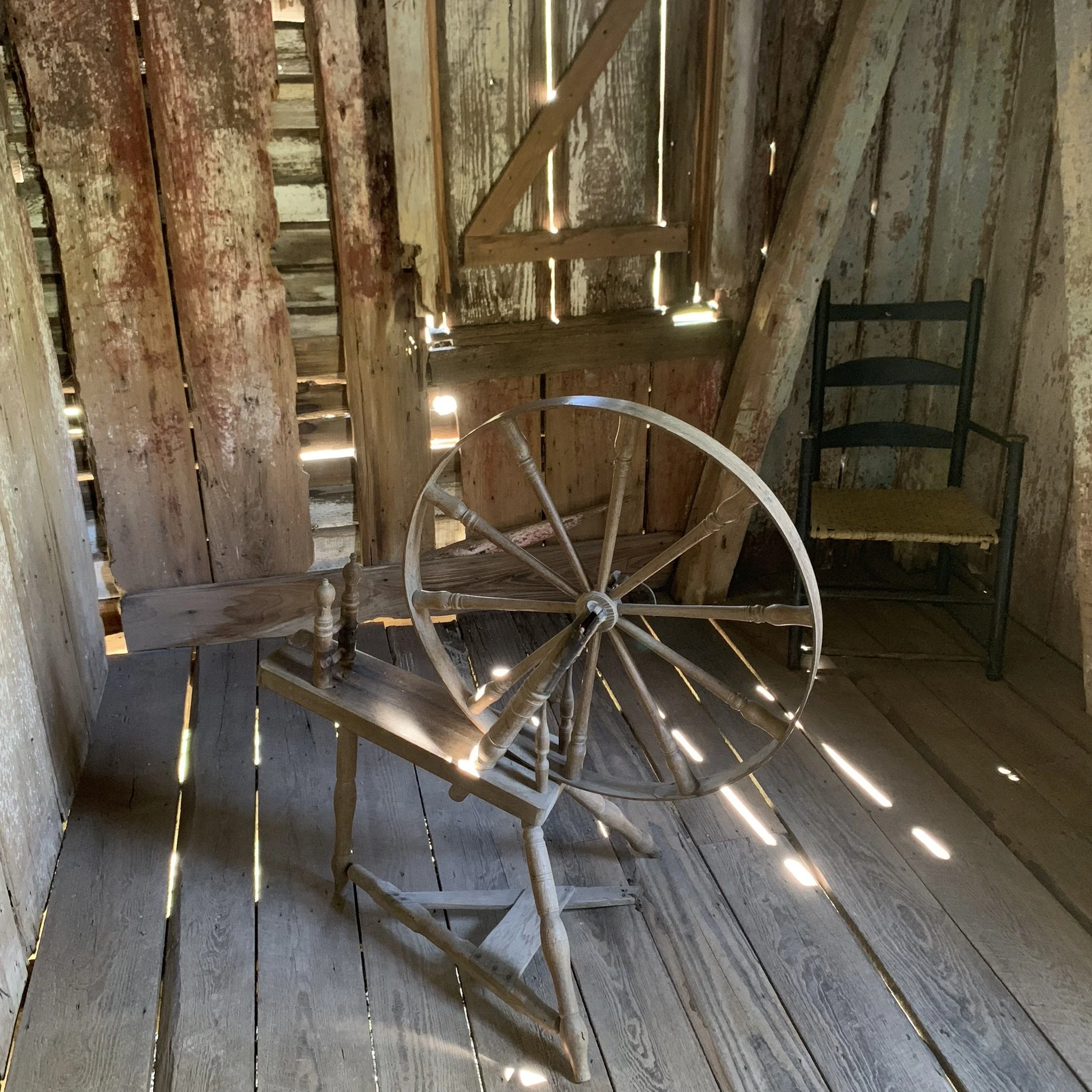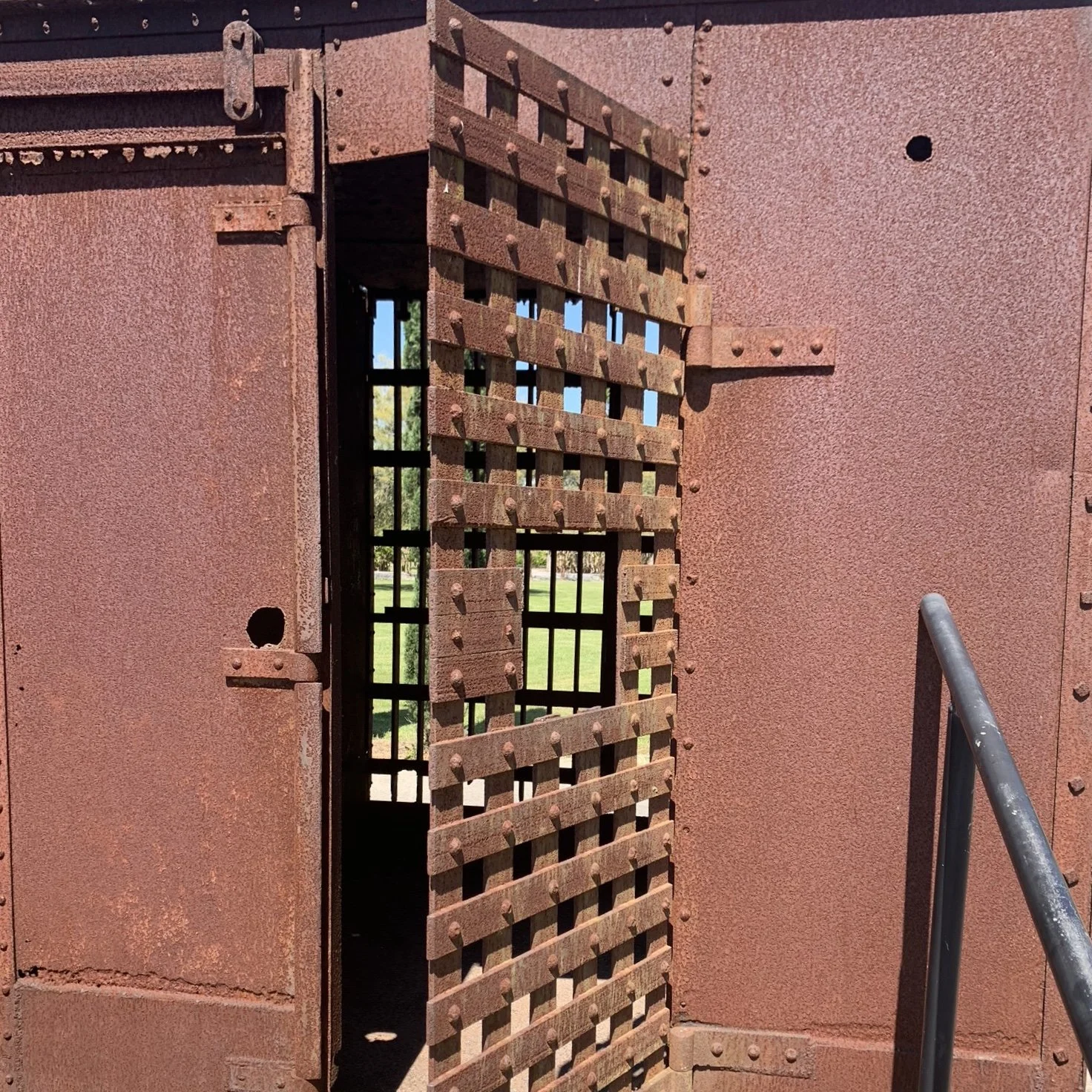Whitney Plantation
The Whitney Plantation in Wallace, Louisiana is dedicated exclusively to teaching the public about the history and legacies of slavery. Students in the Apeiron Arts Initiative NOLA 2019 expeditionary learning program toured the plantation at the end of their week-long study of the musical cultures of New Orleans, reflecting on the space between vibrant musical legacies and the conditions that gave rise to them.
After visiting Congo Square, exploring West African instrument exhibits in the New Orleans Jazz Museum, and working our way through a city that takes its history of slavery seriously in its continuous expressions of syncretic culture, our international students were conceptually primed for the culminating experience of a slave plantation tour. But there is no way to be primed for the reality-in-place of US-American slavery, preserved to evoke a visceral scope of tragedy that should be unfathomable. There is no way to be primed for the legacies we are living through now, our unique brand of inherited structural racism that permeates every facet of life in the United States.
Edward E. Baptist, in The Half Has Never Been Told (a book I picked up in the Whitney Plantation bookstore), discusses the power of omission and assumption in the standard teaching of slavery in the United States:
“Textbooks segregate twenty-five decades of enslavement into one chapter, painting a static picture. Millions of people each year visit plantation homes where guides blather on about furniture and silverware. As sites, such homes hide the real purpose of these places, which was to make African Americans toil under the hot sun for the profit of the rest of the world. All this is the ‘symbolic annihilation’ of enslaved people, as two scholars of those weird places put it. Meanwhile, at other points we tell slavery’s story by heaping praise on those who escaped it through flight or death in rebellion, leaving the listener to wonder if those who didn’t flee or die somehow ‘accepted’ slavery. And everyone who teaches about slavery knows a little dirty secret that reveals historians’ collective failure: many African-American students struggle with a sense of shame that most of their ancestors could not escape the suffering they experienced.”
The Whitney Plantation is working hard to counter those tendencies. Their Education Department has a comprehensive set of resources online, their tours are somber and honest, and there is no “whitewashing” of the site’s history. It is a beacon of truth in a country still mired in insipid denial.



